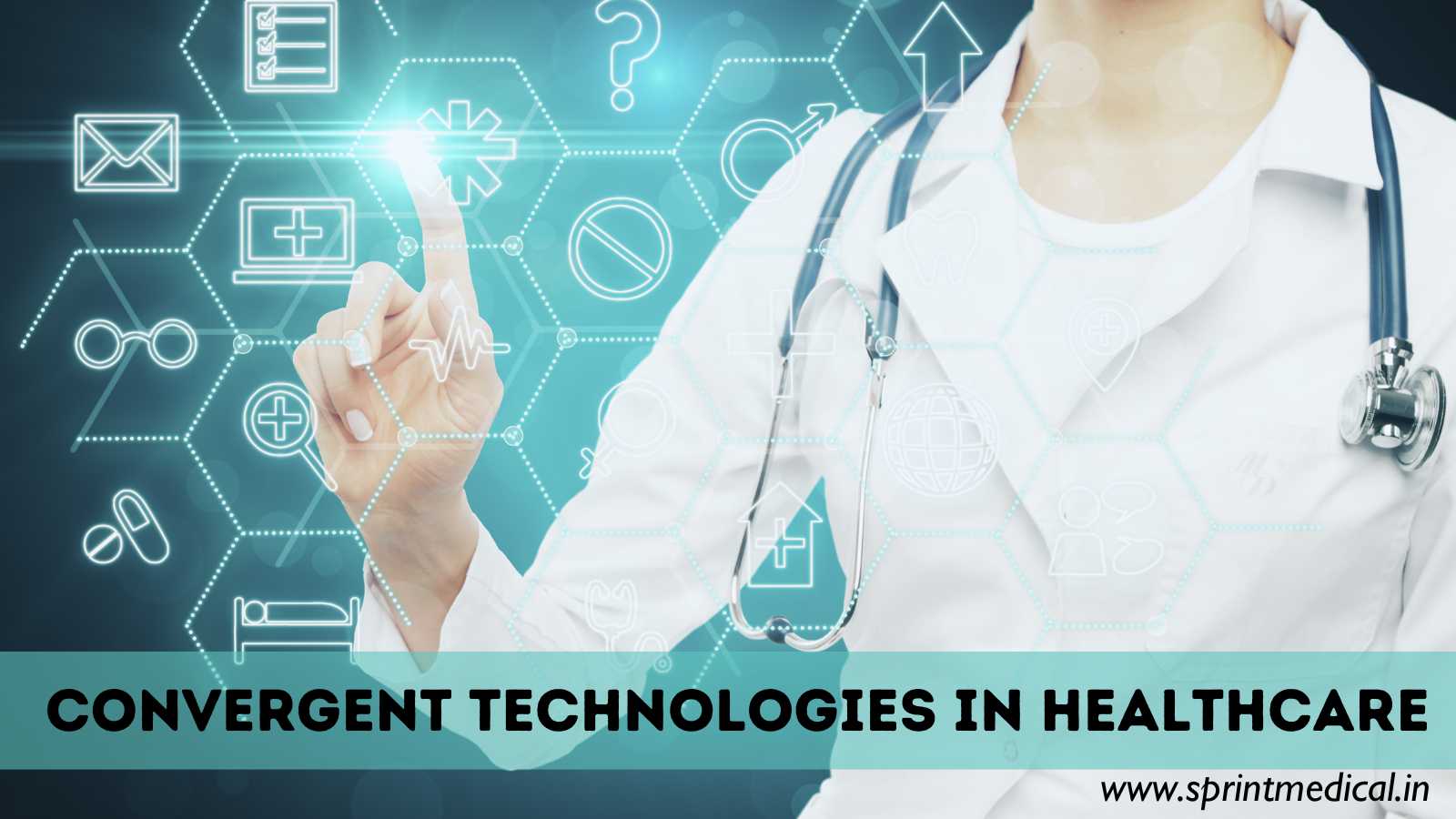04/05/2023 / Medical Advances
Convergent technologies in healthcare: An overview
Technology convergence in healthcare is an advanced route to health and wellness. Convergent technologies have merged technology and healthcare thereby empowering therapeutics.

Table of Content
An Introduction to convergent technologies in Healthcare
For better understanding, it could be said that technology convergence in healthcare is a technological aspect that has "transformed," "supported," and "strengthened" the healthcare system regarding disease understanding, diagnosis, and treatment planning with continuous improvement in accessibility.
Understanding Convergent Technologies in Healthcare
Generally, technology convergence means two independent technologies integrating leading to formation of a new outcome.
Smart wearables are the examples of technology convergence.
They are the cause of evolution of technology.
In concept of technology convergence there is merging, blending and integration of independent technologies. This leads to formation of a completely new technology.
Converged devices perform multiple function, collect and use data and are connected to a network.
When medical technology and IT applications combine, digital health is formed.
Why convergent technologies in healthcare are needed?
In today’s era, in age of digital convergence, it is possible for individuals to know deeply about healthcare.
All details of procedure related to cost, advantages and risk can be provided to the consumers. Social media platforms have further strengthened the quality of healthcare because people are more active on these platforms so they are more aware of taking right decisions on the right time. To be precise, this is possible through electronic devices, servers and database.
How cost is reduced in technology convergence?
Like for example, there is reduced cost of transportation. Chronic disease can be prevented and healthcare resources could be used optimally when consumers are proactive and the physicians make use of the real time data.
Electronic medical records as the outcome of digital convergence
The combination of convergent technologies and cloud computing allow increased sharing of electronic health records. This will directly enhance the accuracy of prescriptions.
These records can be shared across physicians, hospitals and other health related services.
Advantages of technology convergence
These have reduced the storage cost of digital data.
Enhancement of digital content quality.
Reduced cost of transmission of digital content.
Data based facts are provided by doctors.
Better quality of services.
Medical errors are reduced.
Increased accessibility to information.
Challenges In Convergent technologies in healthcare
Education, awareness, encourage and change in consumer behavioral pattern.
Maintenance of security of patient’s data.
Legal and regulatory changes.
Huge cost
Take-Home Points
Convergent technologies have improved the delivery of health care services because of increases in convenience and enhanced effectiveness.
FAQ on Convergent technologies in healthcare
Implanted sensors are effective because they monitor patient health and disease status in a more effective manner.
The key advantage is reduction of error.
When health care activities are integrated, efficiency and care is improved. On the same hand it saves a lot of consumer time.
Telephones, wrist watch, digital cameras, GPS navigators. Wi-Fi are the general examples.
Comments ( 0 )
No Comments
Leave a Comment
Related Posts
4-D Hologram Technology
4-D hologram technology has opened new doors in healthcare by allowing practitioners to work virtually on the human body at various angles bringing less room for human errors during medical procedures.
E-Tattoos For Heart Diagnostics and Heart Monitoring
E-tattoos for heart diagnostics have gained interest globally due to their accuracy, flexibility, ease of use, and noninvasive nature.
Implantable Microchips: Types, Advantages and Disadvantages
Are we ready for technology to literally get under our skin?
Health & Wellness Tips
Subscribe to our blog